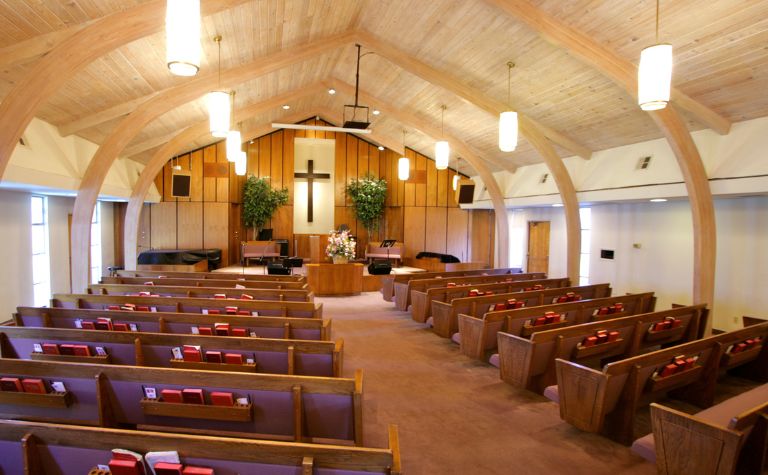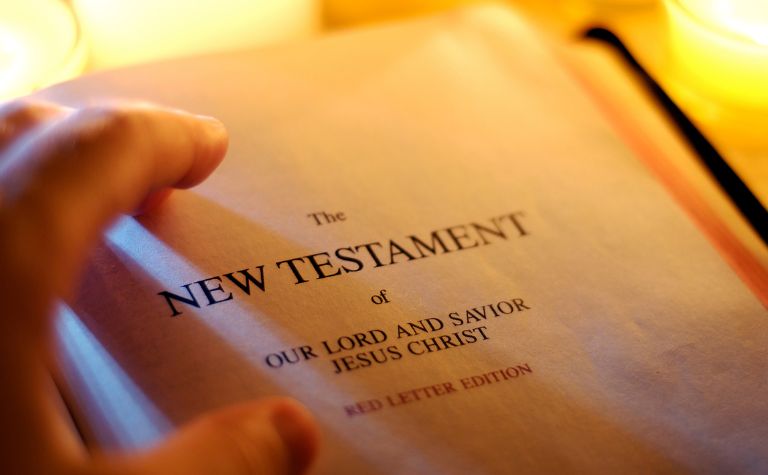The Baptist tradition constitutes one of the largest branches of Protestant Christianity. Baptist churches have existed since the 17th century and are currently found worldwide. The denomination’s global presence and influence lead many people to wonder what the tradition believes.
Baptists affirm Believer’s Baptism, i.e., it’s for professing Christians. They support the autonomy or independence of the local church. They uphold the Priesthood of All Believers, i.e., equal spiritual authority. They believe the Bible is authoritative and promote the separation of Church and State.
What is Believer’s Baptism, and how is it different than other forms of Baptism? How is the Church’s autonomy and separation from the State different from other approaches? Are Baptists Calvinists or Arminians? Keep reading to learn the answers to these questions and others.
Also, compare Baptists with other churches on the Christian Denominations Comparison Chart.

Believer’s Baptism is Central to Baptist Theology
Baptists are distinct in their belief that baptism is only appropriate for those who have professed faith in Jesus Christ; therefore, they practice “believer’s baptism” (i.e., credobaptism).
This differs from some other denominations which practice infant baptism. Baptists perform baptism by immersion, symbolizing the believer’s identification with Christ’s death, burial, and resurrection.
This practice is common in many Christian denominations, including Roman Catholicism, Eastern Orthodoxy, Anglicanism, Lutheranism, and some branches of Presbyterianism and Methodism.
| Credobaptism | Paedobaptism | |
|---|---|---|
| Definition | The practice of baptizing only those who are able to make a conscious, personal profession of faith. | The practice of baptizing infants or young children based on the faith of their parents and the church community. |
| Meaning of Baptism | Baptism is an outward symbol of an individual’s personal decision to follow Christ, representing their identification with the death, burial, and resurrection of Jesus. | Baptism is a sacrament of initiation into the Christian community, which bestows God’s grace upon the individual and marks them as a member of the church, even before personal faith is professed. |
| Age of Baptism | Only those old enough to understand and articulate their faith are baptized, typically adolescents or adults. | Infants and young children are baptized, often as newborns. |
| Major Denominations Practicing | Predominantly practiced by Baptists, Anabaptists, and some Pentecostal groups. | Common in Roman Catholicism, Eastern Orthodoxy, Anglicanism, Lutheranism, and some branches of Presbyterianism and Methodism. |
| Biblical Interpretation | Supporters often reference passages like Acts 8:12, which speaks of people being baptized after they believed. | Supporters often point to household baptisms in the New Testament (like Acts 16:15) and the parallels between baptism and Old Testament circumcision. |
Baptists Value the Autonomy of the Local Church
Baptists strongly emphasize the autonomy of the local church, meaning that each individual Baptist church is self-governing and self-supporting. They collaborate with other churches and organizations for specific causes, but the decision-making power lies within the local congregation.
This differs from a centralized or hierarchical church governance structure. This system is commonly found in denominations such as the Roman Catholic Church, the Eastern Orthodox Church, and the Anglican Communion.
In centralized or hierarchical governance, authority is not vested in the local congregation. Instead, decisions regarding doctrine, liturgy, and other important matters are typically made by a central authority, such as a bishop, a synod, or a council, and these decisions are binding on all the churches within the denomination.
Also, see Baptist vs. Southern Baptist to learn more.

Baptists Believe in the Priesthood of All Believers
Similar to Lutherans, Baptists also hold the belief in the “priesthood of all believers.” This means that every Christian has direct access to God without needing a human mediator, underscoring the personal nature of faith and prayer.
This differs from a hierarchical or mediatory priesthood. This is a structure where a select group of ordained individuals, often referred to as priests or clergy, hold special religious authority and play a unique role in facilitating the relationship between the laity (ordinary members of the church) and God.
Sole Authority of the Bible
Baptists subscribe to the principle of “sola scriptura,” the belief that the Bible is the ultimate authority in matters of faith and practice. It means that the Bible is the final source to test any teaching or practice.
“Sola Scriptura” is a theological doctrine that holds the Bible as the supreme and final authority in all matters of faith and practice. The term itself is Latin and translates to “Scripture alone.”
| Sola | Definition |
|---|---|
| Sola Scriptura (“Scripture alone”) | This doctrine holds that the Bible is the supreme authority in all matters of faith and practice, and it is sufficient as the rule for the life of the believer. Other authorities such as church tradition or ecclesiastical hierarchies are secondary to the Scriptures. |
| Sola Fide (“Faith alone”) | This principle asserts that salvation is received through faith in Jesus Christ alone, not through good works or human effort. Justification, or being made right with God, is a gift received by faith. |
| Sola Gratia (“Grace alone”) | This doctrine emphasizes that salvation is entirely a result of God’s grace or unmerited favor, not something we can earn or deserve. It is God’s grace that enables the believer to have faith. |
| Solus Christus (“Christ alone”) | This doctrine asserts that Christ is the only mediator between God and humanity. Salvation is found only through His life, death, and resurrection, and it is His righteousness that justifies the believer before God. |
| Soli Deo Gloria (“Glory to God alone”) | This principle underscores that all of life is to be lived for God’s glory. Because salvation is entirely God’s work, He alone deserves all the glory and praise. |
Proponents of sola scriptura believe that all doctrines, teachings, and practices of the church must be in alignment with what is written in the Scriptures.
It asserts that traditions, church authorities, or any other human sources do not carry the same authority as the Bible, and they should be subordinate to and judged by the Word of God.
This principle distinguishes Protestant Christianity from other Christian traditions, particularly the Roman Catholic Church and the Eastern Orthodox Church, which give significant authority to church tradition and ecclesiastical hierarchies alongside the Scriptures.
Also, see What’s the Difference Between First and Second Baptists? to learn more.

Separation of Church and State
Baptists traditionally have been strong advocates for the separation of church and state. They believe that the state should not control or interfere with matters of faith; likewise, the church should not control or dictate civil affairs.
This differs from an established church, or state religion is a system where the state formally recognizes a specific religious denomination as its official faith.
This church usually benefits from certain privileges granted by the state, and there can be mutual influence between church and government. It contrasts with the principle of church-state separation.
Are Baptists Calvinists or Arminians?
The Baptist tradition is diverse and encompasses a range of theological perspectives, including both Calvinism and Arminianism.
Some Baptists, particularly those within Reformed Baptist churches, identify with Calvinist doctrines such as predestination and the perseverance of the saints. These groups often emphasize the sovereignty of God in salvation.
On the other hand, there are also Baptists who lean towards Arminian beliefs, such as the idea of free will in human salvation and the possibility of losing salvation. This is particularly common among General Baptists and some Free Will Baptists.
In addition to these groups, there are also many Baptists who hold to a mixture of Calvinist and Arminian views or who do not fit neatly into either category.
Therefore, it’s important to consider the particular beliefs of an individual Baptist or Baptist congregation, rather than making assumptions based on the label “Baptist” alone.
Also, see Baptist vs. Evangelical Christianity Comparison to learn more.
Related Questions
The Baptist tradition and Roman Catholicism are two of the most prominent historical branches of the Christian faith. While the beliefs and practices of each church and its members have noteworthy...
Baptist denominations and churches, which date to the 17th century, comprise one of the largest branches of Christianity in the Western world. While Christian churches in Baptist networks and...
